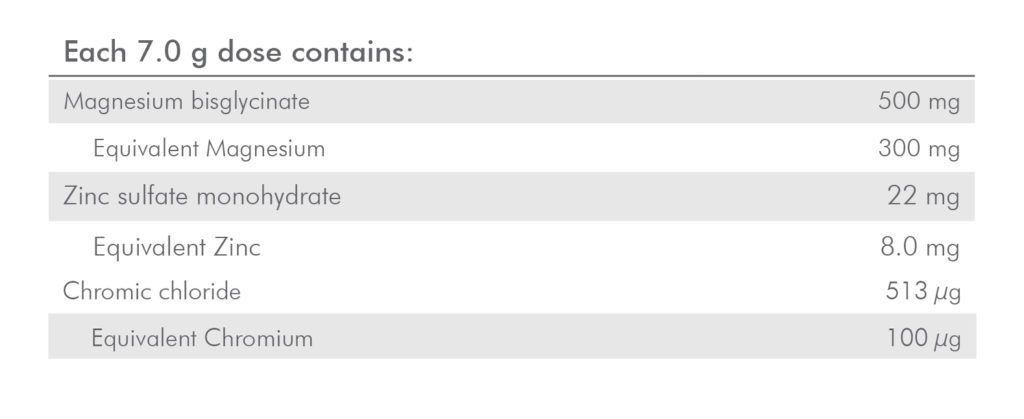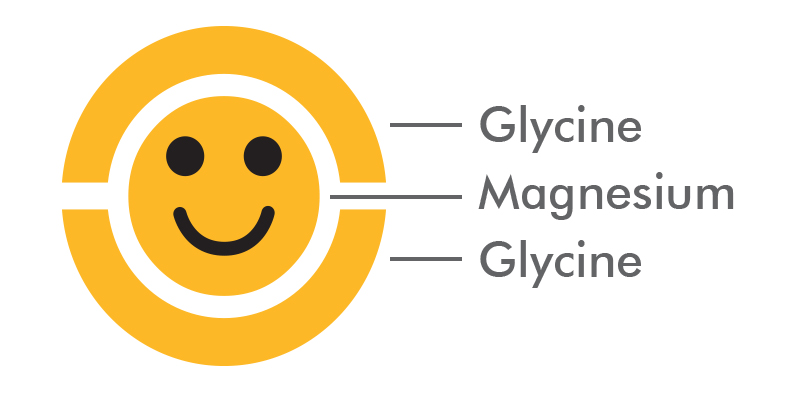Imagine for a moment you need an important item delivered. Would you:
- Choose a reliable courier service that delivers swiftly, efficiently and goes above and beyond; or
- Choose a dodgy courier service that may not ever show up with your package?
You’d choose the reliable option, right?
When it comes to supplements, minerals also come with their own delivery driver, which is the compound, or carrier, they’re bound to. Together, the mineral and its courier are referred to as the chemical form of the mineral supplement. Like the courier above, depending on what form you chose, this will influence how well these minerals are delivered to your cells.
There are two main groups of ‘couriers’ minerals can be bound to:
- Amino acid chelates: minerals who are attached to amino acids (the building blocks of proteins). These forms are often considered to be the better ‘delivery service’.
- Salts: a chemistry term referring to how they bind to the mineral, which can have varying degrees of reliability when it comes to ‘delivering’ minerals.

When clearly labelled, a supplement formula will tell you which ‘courier’ a mineral is bound to. There are three minerals in the image above we can use as examples:
- Magnesium bisglycinate: Here magnesium is bound to an amino acid chelate, specifically two glycine molecules, which are amino acids (more on this below).
- Zinc sulfate monohydrate: Here zinc is bound to a sulfate group, which is in a salt form.
- Chromic chloride: Here chromium bound to a chloride compound, which is another salt form.
When clearly labelled, a supplement formula will tell you which ‘courier’ a mineral is bound to.
Regardless of what form your mineral supplement takes, once you ingest it, its next step is to be absorbed through the wall of your digestive tract. In order to do this, the mineral first has to break away from the carrier it is bound to. Using our delivery analogy, this is equivalent to a courier dropping a package off at your front door, ready for you to collect and bring inside.
It is here the different quality of minerals carriers can start to become an issue, as they aren’t all efficient or reliable at this task. For instance, the salt forms of carriers are more likely to drop off or deliver, their mineral before they reach the proper destination. This leads to unbound minerals present with your digestive tract, which can go on to cause undesirable side effects such as nausea or diarrhoea.
This is where glycine bound minerals, known as bisglycinate forms, go above and beyond, as glycine is one of the most useful, reliable and beneficial forms of minerals couriers on the market.

As mentioned above, bisglycinate refers to a carrier made up of two small glycine amino acids. As the body is designed to efficiently absorb protein, minerals bound to bisglycinate are absorbed fully intact through protein channels within the gut; offering a direct delivery service. Conversely, free minerals pass through mineral channels, often having to compete with each other to be absorbed. Therefore, being attached to these two glycine’s means a minerals absorption is not impacted by other minerals, ensuring that the dose you take will be delivered for use by your body. Being couriered by these glycine amino acids also protects minerals from compounds in foods that can bind to and affect their absorption, such as fiber.[1]
But wait, there’s more! Beyond enhanced mineral absorption, glycine also holds potent medicinal properties – its very own version of service with a smile. Research tells us that glycine helps to relax tight muscles, calm the activity of your brain and nervous system, and lower your core body temperature to assist with sleep onset. At a dose of 3 grams/d, glycine is able to:
- Significantly reduce fatigue and drowsiness; [2]
- Improve clear-headedness during the day;[3]
- Increase sleep efficiency and satisfaction;[4] and
- Increase performance under psychological and motor function test conditions.[5]

All in all, glycine is a highly reliable courier but delivers on more than just minerals. As an added bonus, its therapeutic effects are further maximised when combined with minerals that also support muscle relaxation and sleep, such as magnesium.
its therapeutic effects are further maximised when combined with minerals that also support muscle relaxation and sleep, such as magnesium.
So if you’re searching for a magnesium supplement to support you with sleep, stress and energy, look for one that contains magnesium bisglycinate, and you’ll be sourcing the supplements that’ll deliver!
[1] Siebrecht S. Magnesium Bisglycinate as safe form for mineral supplementation in human nutrition. OM & Ernährung. 2013;144:2-16.
[2] Inagawa K, Hiraoka T, Kohda T, Yamadera W, Takahashi M. Subjective effects of glycine ingestion before bedtime on sleep quality. Sleep Biol Rhythms. 2006 Feb 1;4(1):75-7.
[3] Inagawa K, Hiraoka T, Kohda T, Yamadera W, Takahashi M. Subjective effects of glycine ingestion before bedtime on sleep quality. Sleep Biol Rhythms. 2006 Feb 1;4(1):75-7.
[4] Yamadera W, Inagawa K, Chiba S, Bannai M, Takahashi M, Nakayama K. Glycine ingestion improves subjective sleep quality in human volunteers, correlating with polysomnographic changes. Sleep Biol Rhythms. 2007 Apr 1;5(2):126-31.
[5] Bannai M, Kawai N. New therapeutic strategy for amino acid medicine: glycine improves the quality of sleep. J Pharmacol Sci. 2012;118(2):145-8. Epub 2012 Jan 27. Review. PubMed PMID: 22293292.









Leave a Comment